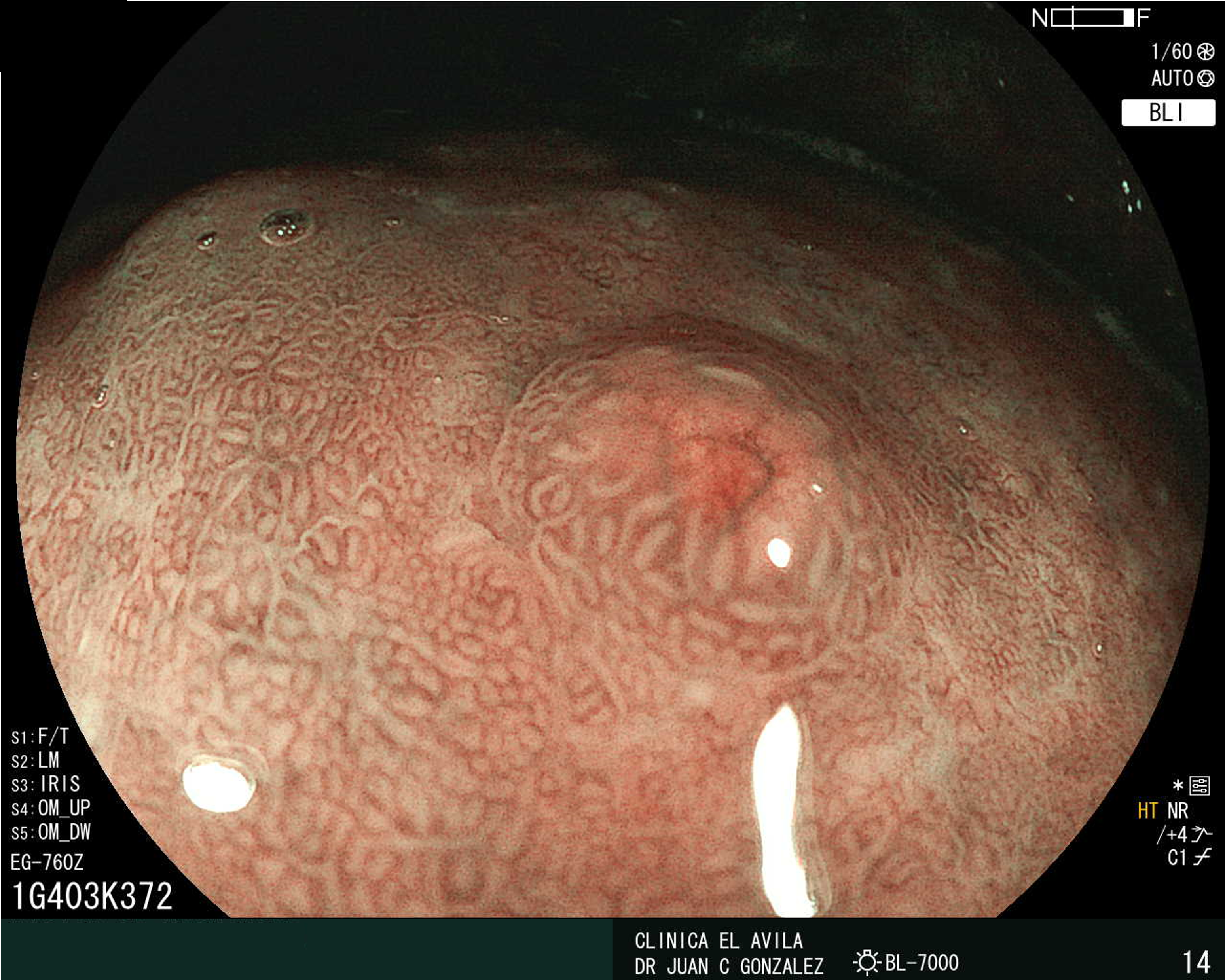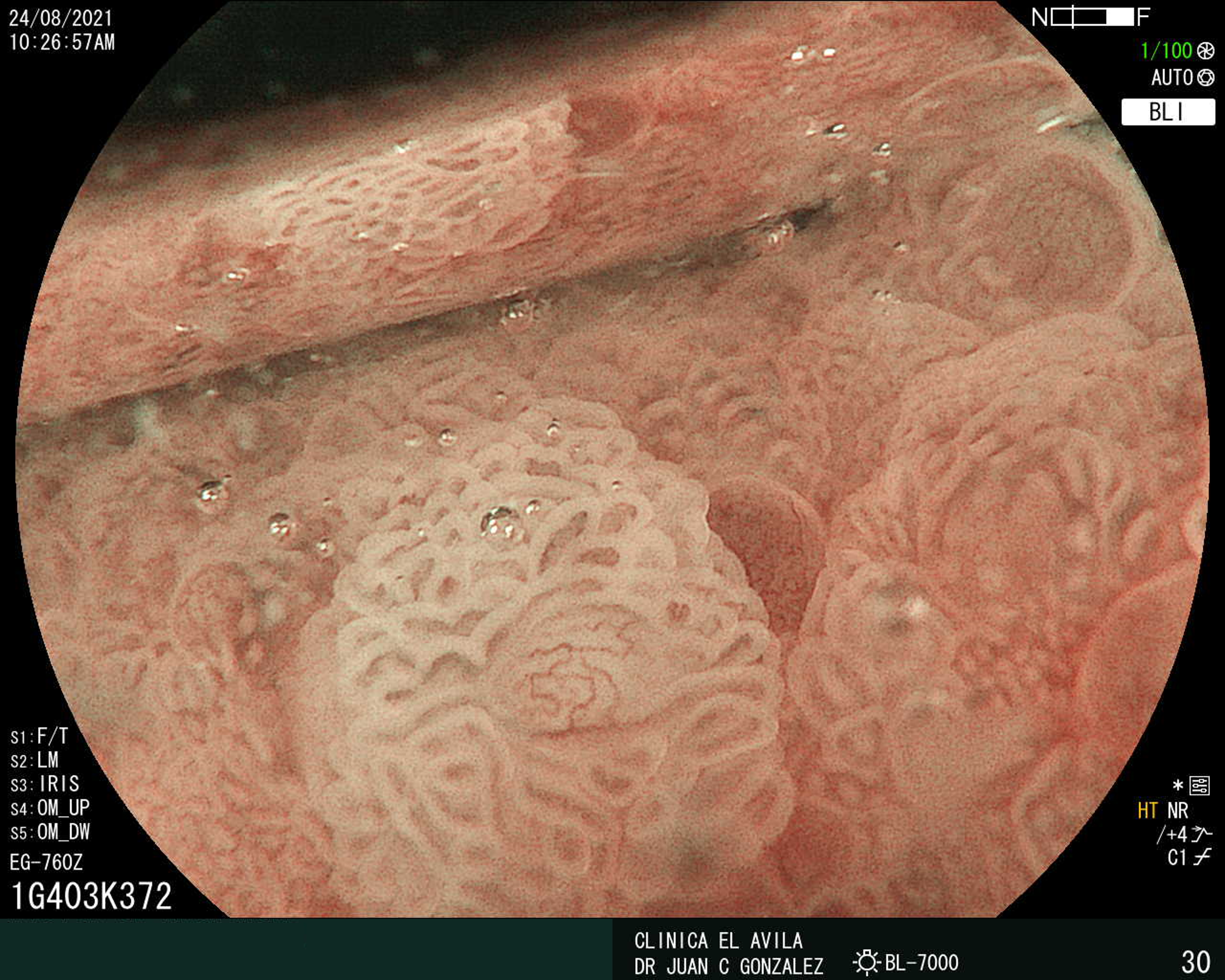Rol de las funciones ejecutivas en la comprensión de la ingesta alimentaria ¿respuestas o vacíos?
Resumen
Las funciones ejecutivas (FE) son un sistema de operaciones cognitivas complejas que participan en el control emocional y conductual, específicamente aquellas que se requieren para concentrarse, pensar, esforzarse y controlar impulsos ante una tarea determinada. Por tanto, son fundamentales para muchas de las estrategias que se despliegan en el logro de los objetivos que se tracen, y entre estos, potencialmente la capacidad para seguir una dieta y un plan de ejercicios. La evidencia encontrada sugiere que personas con sobrepeso u obesidad, presentan un conjunto de déficits en las FE que podrían ser importantes para explicar el aumento de su ingesta alimentaria ante determinadas condiciones. Entender el rol de las FE ayudaría a comprender las razones por las cuales las personas fracasan en diversos métodos para el control del peso.
Palabras clave
Texto completo:
PDFReferencias
Diamond, A., & Lee, K. Interventions shown to Aid Executive Function Development in Children 4–12 Years Old. Science. 2011; 333(6045): 959–964. doi:10.1126/science.1204529
Lezack, M. D. The problem of assessing executive funtions. International Journal of Psychology. 1982; 17: 281-297.
Lezack, M. D. Relationships between personality disorders, social disturbances, and physical disability following traumatic brain injury. The Journal of Head Trauma Rehabilitation, 2(1): 57-69.
Lezack, M. D., Howieson, D. B., Loring, D. W., & Fische, J. S. Neuropsychological Assessment (4th ed.). 2004. Oxford University Press.
Funahashi, S. Neuronal mechanisms of executive control by the prefrontal cortex. Neurosci Res. 2001; 39(2): 147-165.
Tirapu, J., Pérez, G., Erekatxo, M., & Pelegrín, C. ¿Qué es la teoría de la mente? Revista de Neurología. 2007; 44(8): 479–489.
Diamond, A. Executive Function. Annual Review of Psychology. 2013; 64, 135-168.
Diamond, A., & Ling, D. Conclusions about interventions, programs, and approaches for improving executive functions that appear justified and those that, despite much hype, do not. Developmental Cognitive Neuroscience. 2016; 18: 34-48. doi: 10.1016/j.dcn.2015.11.005
Miyake, A., & Friedman, N. P. The nature and organization of individual differences in executive functions: Four general conclusions. Current Directions in Psychological Science. 2012; 21:8-14.
Dajani, D. R., & Uddin, L. Q. (2015). Demystifying cognitive flexibility: Implications for clinical and developmental neuroscience. Trends Neurosci, 38(9), 571-578. doi: 10.1016/j.tins.2015.07.003
Anderson, P. J. Towards a developmental model of executive function. En V. Anderson, R. Jacobs y P. J. Anderson (Eds.), Executive functions and the frontal /lobes: A lifespan perspective (pp. 3-22). 2008. Nueva York: Psychology Press
Zelazo, P. D., & Müller, U. Executive functioning in typical and atypical children. In U. Goswami, Blackwell Handbook of childhood cognitive development (2nd ed., pp. 574–603). 2010. Oxford, UK: Blackwell.
Baddeley, A. D. Working memory. 1986. Oxford: Oxford University Press
Norman, D. A. y Shallice, T. Attention to action: willed and automatic control of behaviour. En R. J. Davidson, G. E. Schwartz y D. E. Shapiro (Eds.), Consciousness and self-regulation (Vol. 4, pp. 1-14). 1986. Nueva York: Plenum.
Alexander, M., y Stuss, D. Disorders of frontal lobe functioning. Seminars in Neurology. 2000; 20(4): 427-437.
Hosenbocus, S., & Chahal, R. A Review of Executive Function Deficits and Pharmacological Management in Children and Adolescents. J Can Acad Child Adolesc Psychiatry. 2012; 21(3): 223-229.
Shallice, T. y Burgess, P. W. The domain of supervisory processes and temporal organisation of behaviour. Philosophica/ Transactions of the Royal Society of London B: Biological Sciences. 1996. 351: 1405-1412.
Miyake, A., Friedman, N. P., Emerson, M. J., Witzki, A. H., Howerter, A., & Wager, T. D. The unity and diversity of executive functions and their contributions to complex frontal lobe tasks: A latent variable analysis. Cognitive Psychology. 2000; 41: 49-100.
Bausela, E. Funciones ejecutivas: nociones del desarrollo desde una perspectiva neuropsicológica. Acción Psicológica. 2014; 11(1):21-34. doi: http://dx.doi.org/10.5944/ap.1.1.13789
Stelzer, F., Cervigni, M., & Martino, P. Desarrollo de las funciones ejecutivas en niños preescolares: una revisión de algunos de sus factores moduladores. LIBERABIT. 2011; 17(1): 93-100.
Trujillo, N., & Pineda, D. Función Ejecutiva en la Investigación de los Trastornos del Comportamiento del Niño y del Adolescente. Revista Neuropsicología, Neuropsiquiatría y Neurociencias. 2008; 8(1): 77-94.
Lozano, A., & Ostrosky, F. Desarrollo de las Funciones Ejecutivas y de la Corteza Prefrontal. Revista Neuropsicología, Neuropsiquiatría y Neurociencias. 2011; 11(1): 159-172.
Diamond, A. Normal development of prefrontal cortex from birth to young adulthood: Cognitive functions, anatomy, and biochemistry. In D. T. Stuss, & R. T. Knight, Principles of frontal lobe function (pp. 466-503). 2002. New York: Oxford University Press.
Tsujimoto, S. The prefrontal cortex: functional neural development during early childhood. Neuroscientist. 2008; 14(4): 345-358. doi:10.1177/1073858408316002
Anderson, P. Assessment and development of executive function (EF) during childhood. Child Neuropsychol. 2002; 8(2): 71-82. doi:10.1076/chin.8.2.71.8724
Liebermann, D., Giesbrecht, G., & Muller, U. Cognitive and emotional aspects of self-regulation in preschoolers. Cognitive Development. 2007; 22: 511-529. doi: 10.1016/j.cogdev.2007.08.005
Godefroy, O. Frontal syndrome and disorders of executive functions. J Neurol. 2003; 250: 1-6. doi:10.1007/s00415-003-0918-2
Gilbert, S. J., & Burgess, P. W. Executive function. Curr Biol. 2008;18(3): R110-R114. doi: 10.1016/j.cub.2007.12.014
Chan, R., Shum, D., Toulopoulou, T., & Chen, E. Assessment of executive functions: Review of instruments and identification of critical issues. 2008; 23(2): 201-216. doi: 10.1016/j.acn.2007.08.010
Garon, N., Bryson, S. E., & Smith, I. M. Executive function in preschoolers: a review using an integrative framework. Psychol Bull. 2008; 134(1): 31-60. doi:10.1037/0033-2909.134.1.3
Spinella, M., & Lyke, J. Executive personality traits and eating behavior. Int J Neurosci. 2004; 114(1): 83-93. doi:10.1080/00207450490249356
Hall, P. A. Executive control resources and frequency of fatty food consumption: findings from an age-stratified community sample. Health Psychol. 2012. 31(2): 235-241. doi:10.1037/a0025407
Hofmann, W., Schmeichel, B. J., & Baddeley, A. D. Executive functions and self-regulation. Trends Cogn Sci. 2012. 16(3): 174-180. doi: 10.1016/j.tics.2012.01.006
Solberg Nes, L., Roach, A. R., & Segerstrom, S. C. Executive functions, self-regulation, and chronic pain: a review. Ann Behav Med. 2009; 37(2): 173-183. doi:10.1007/s12160-009-9096-5
Ortolani, D., Oyama, L. M., Ferrari, E. M., Melo, L. L., & Spadari-Bratfisch, R. C. Effects of comfort food on food intake, anxiety-like behavior and the stress response in rats. Physiol Behav. 2011; 103: 487-492. doi: 10.1016/j.physbeh.2011.03.028
Pool, E., Delplanque, S., Coppin, G., & Sander, D. Is comfort food really comforting? Mechanisms underlying. Food Research International. 2015; 76(2): 207-215. doi: 10.1016/j.foodres.2014.1 2.034
Tomiyama, A. J., Dallman, M. F., & Epel, E. S. Comfort food is comforting to those most stressed: Evidence of the chronic stress response network in high stress women. Psychoneuroendocrinology. 2011; 36(10): 1513-1519. doi:10.10 16/j.psyneuen.2011.04.005
Wyckoff, E. P., Evans, B. C., Manasse, S. M., Butryn, M. L., & Forman, E. M. Executive functioning and dietary intake: Neurocognitive correlates of fruit, vegetable, and saturated fat intake in adults with obesity. Appetite. 2017; 111: 79-85. doi:10.1016/j.appet.2016.12.039
Mobbs, O., Iglesias, K., Golay, A., & Van der Linden, M. Cognitive deficits in obese persons with and without binge eating disorder. Investigation using a mental flexibility task. Appetite. 2011; 57(1): 263-271. doi:doi: 10.1016/j.appet.2011.04.023
Jasinska, A. J., Yasuda, M., Buranta, C. F., Gregor, N., Khatri, S., Sweet, M., & Falk, E. B. Impulsivity and inhibitory control deficits are associated with unhealthy eating in young adults. Appetite. 2012; 59(3): 738-747. doi:10.1016/j.appet.2012.08.001
Privitera, G. J., McGrath, H. K., Windus, B. A., & Doraiswamy, P. M. Eat now or later: self-control as an overlapping cognitive mechanism of depression and obesity. PLoS One. 2015; 10(3): e0123136. doi:10.1371/journal.pone.0123136
Houben, K., Nederkoorn, C., & Jansen, A. Eating on impulse: the relation between overweight and food-specific inhibitory control. Obesity. 2014; 22(5): E6-E8.
Cserjési, R., Luminetb, O., Poncelet, A., & Lénárda, L. Altered executive function in obesity. Exploration of the role of affective states on cognitive abilities. Appetite. 2009; 52(2): 535-539. doi:10.1016/j.appet.2009.01.003
Roberts, C., Campbell, I. C., & Troop, N. Increases in Weight during Chronic Stress are Partially Associated with a Switch in Food Choice towards Increased Carbohydrate and Saturated Fat Intake. European Eating Disorders Review. 2013; 22(1): 77-82. doi:10.1002/erv.2264
Galioto, R., Spitznagel, M. B., Strain, G., Devlin, M., Cohen, R., Paul, R., . . . Gunstad, J. Cognitive Function in Morbidly Obese Individuals With and Without Binge Eating Disorder. Compr Psychiatry. 2016; 53(5): 490-495. doi:10.1016/j.comppsych.201 1.09.002
Perpiñá , C., Segura, M., & Sánchez-Reales, S. Cognitive flexibility and decision-making in eating disorders and obesity. Eat Weight Disord. 2017; 22(3): 435-444. doi:10.1007/s40519-016-0331-3
Duchesne, M., Mattos, P., Appolinário, J. C., de Freitas , S. R., Coutinho, G., Santos, C., & Coutinho, W. Assessment of executive functions in obese individuals with binge eating disorder. Rev Bras Psiquiatr. 2010; 32(4): 381-388.
Higgs, S. Cognitive processing of food rewards. Appetite. 2016; 104: 10-17. doi:10.1016/j.appet.2015.10.003
Yang, Y., Shields, G. S., Guo, C., & Liu, Y. Executive function performance in obesity and overweight individuals: A meta-analysis and review. Neurosci Biobehav Rev. 2018; 84: 225-244. doi:10.1016/j.neubiorev.2017.11.020
Cook, R., O’Dwyer N, Donges, C., Parker, H., Lun Cheng, H., Steinbeck, K. S., . . . O’Connor, H. Relationship between Obesity and Cognitive Function in Young Women: The Food, Mood and Mind Study. Journal of Obesity. 2017: 1-11. doi:10.1155/20 17/5923862
Spitznagel, M. B., Garcia, S., Miller, L. A., Strain, G., Devlin, M., Wing, R., . . . Gunstad, J. Cognitive function predicts weight loss after bariatric surgery. Surg Obes Relat Dis. 2013; 9(3): 453-459. doi:10.1016/j.soard.2011.10.008.
Guerrieri, R., Nederkoorn, C., & Jansen, A. How impulsiveness and variety influence food intake in a sample of healthy women. Appetite. 2007; 48(1): 119-122. doi:10.1016/j.app et.2006.06.004
Nederkoorn, C., Coelho, J., Guerrieri, R., Houben, K., & Janse, A. Specificity of the failure to inhibit responses in overweight children. Appetite. 2012; 59: 409-413. doi:10.1016 /j.appet.2012.05.028
Hofmann, W., Schmeichel, B. J., & Baddeley, A. D. Executive functions and self-regulation. Trends Cogn Sci. 2012; 16(3): 174-180. doi:10.1016/j.tics.2012.01.006
Bekker, M. H., van de Meerendonk, C., & Mollerus, J. Effects of negative mood induction and impulsivity on self-perceived emotional eating. Int J Eat Disord. 2004; 36(4): 461-469.
Racine, S. E., Culbert, K. M., Larson, C. L., & Klump, K. L. Racine SE, Culbert KM, Larson CL, Klump KL. The possible influence of impulsivity and dietary restraint on associations between serotonin genes and binge eating. J Psychiatr Res. 2009; 43(16): 1278-1286.
Carver, C. S., & Connor-Smith, J. Personality and coping. Annu Rev Psychol. 2010; 61: 679-704. doi:10.1146/annurev.ps ych.093008.100352
Mas, N., Fusté, A., García-Grau, E., & Bados, A. Coping styles and vulnerability to eating disorders in adolescent girls, by age. Terapia psicológica. 2015; 3(3): 161-168. doi:10.4067/S0718-48082015000300001
Silva, J. Sobrealimentación Inducida por la Ansiedad Parte II: Un marco de referencia neurocientífico para el desarrollo de técnicas psicoterapéuticas y programas de prevención. Terapia Psicológica. 2008; 26(1): 99-115.
DOI: http://dx.doi.org/10.61155/gen.v72i2.399
IMÁGENES GEN
| Figura 1. Tumor Neuroendocrino Gástrico | Figura 2. Hiperplasia de Células Neuroendocrinas en estómago |
 |  |
 |  |  |
ISSN: 0016-3503 e-ISSN: 2477-975X










